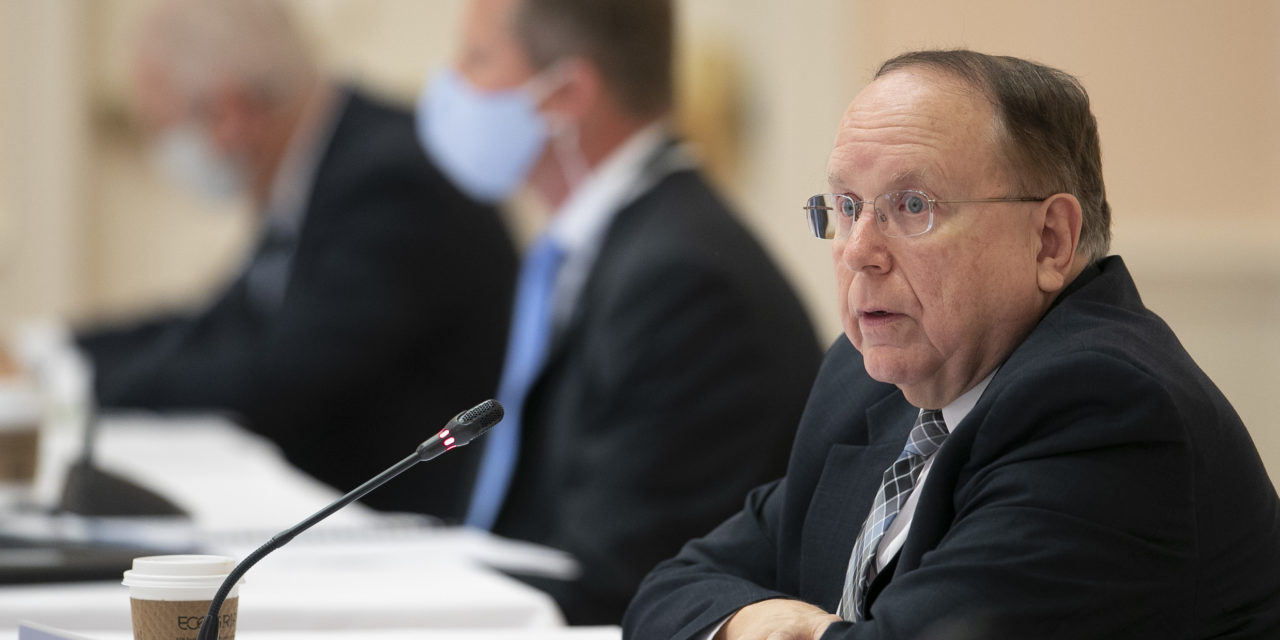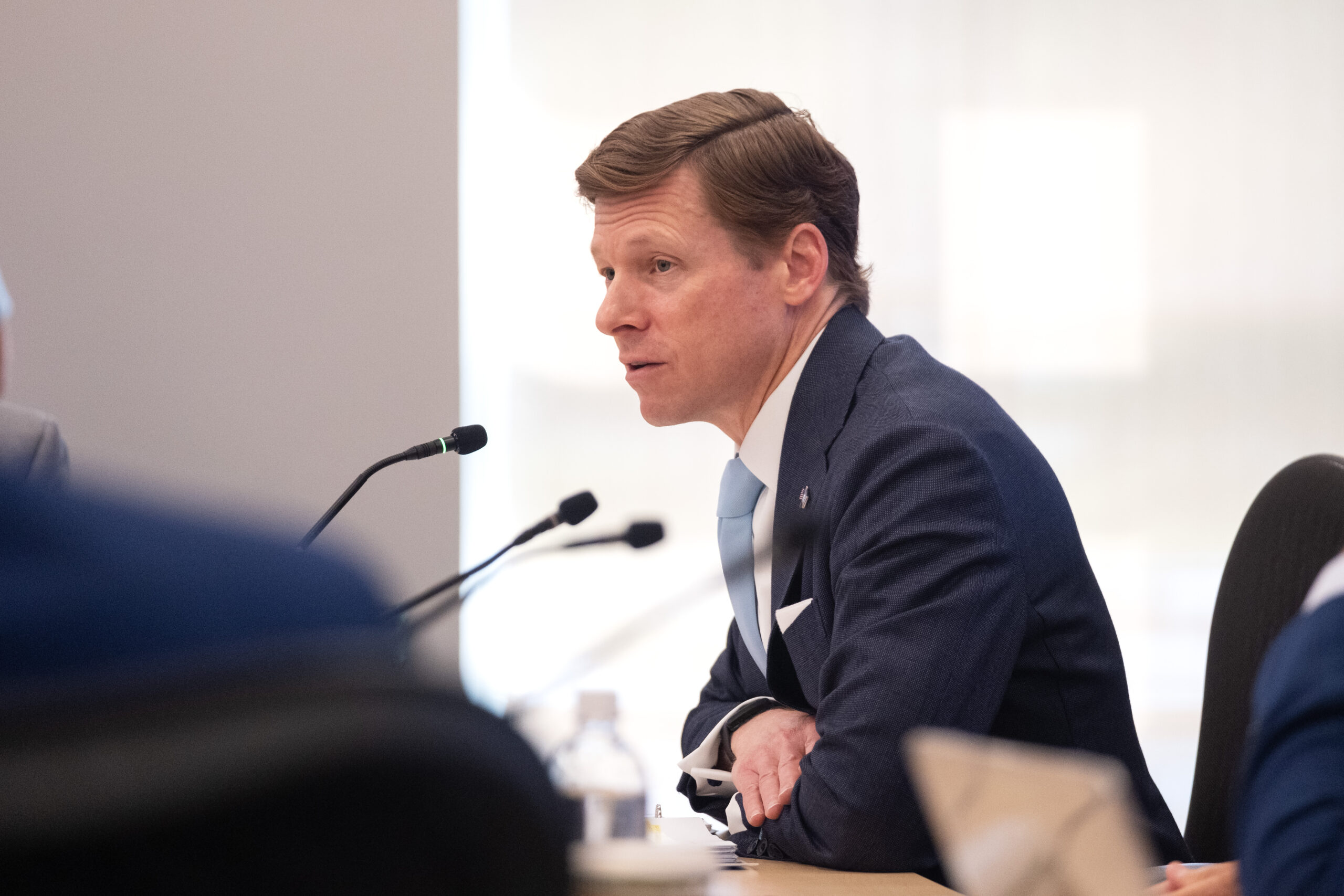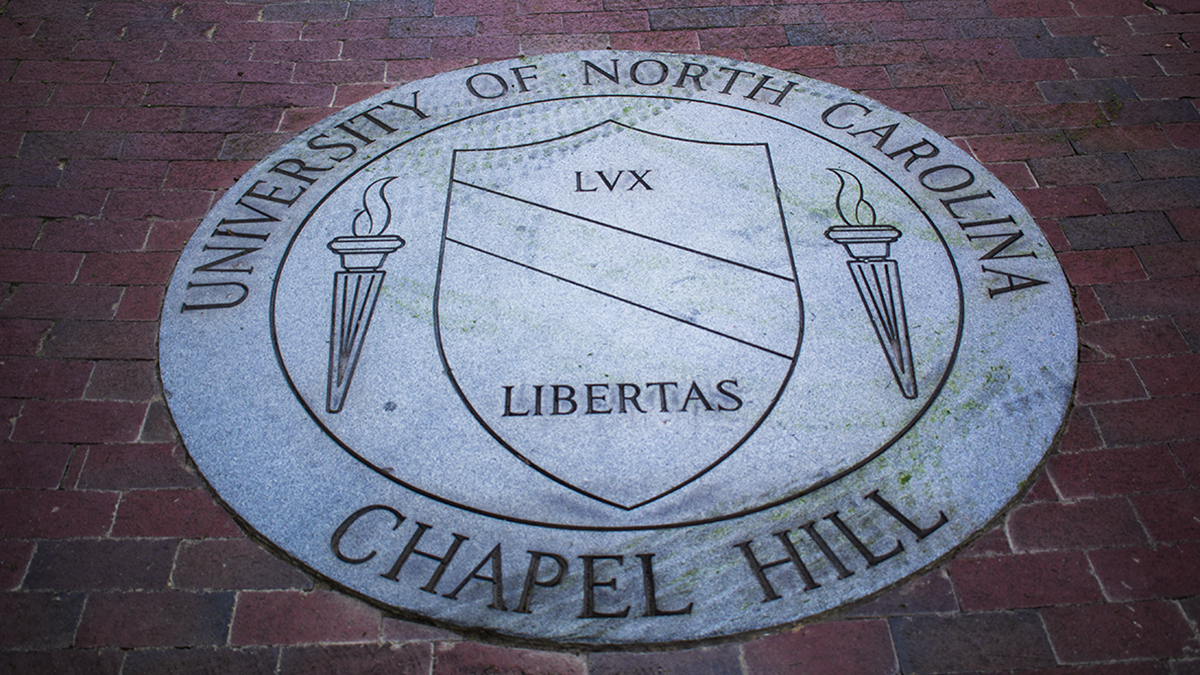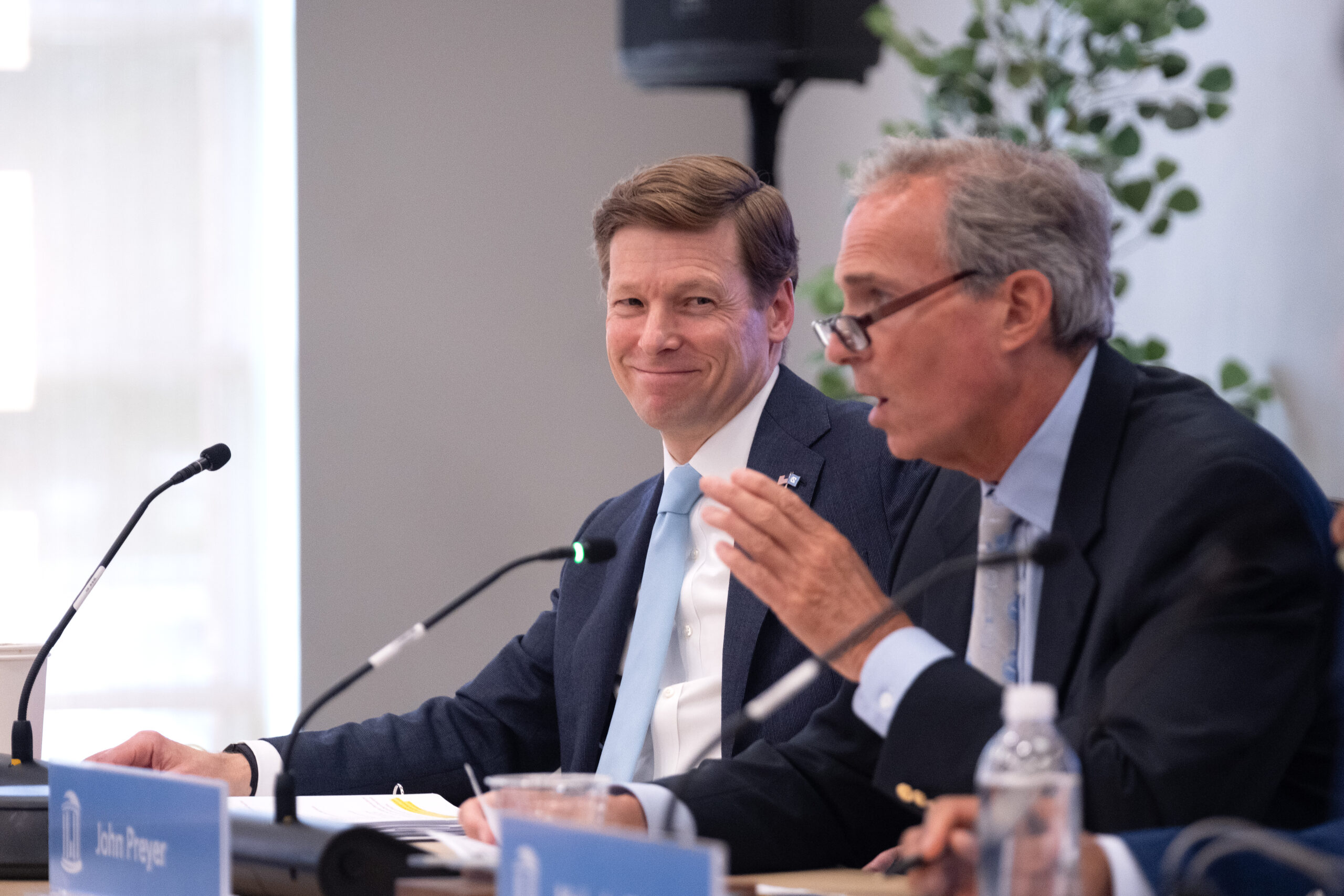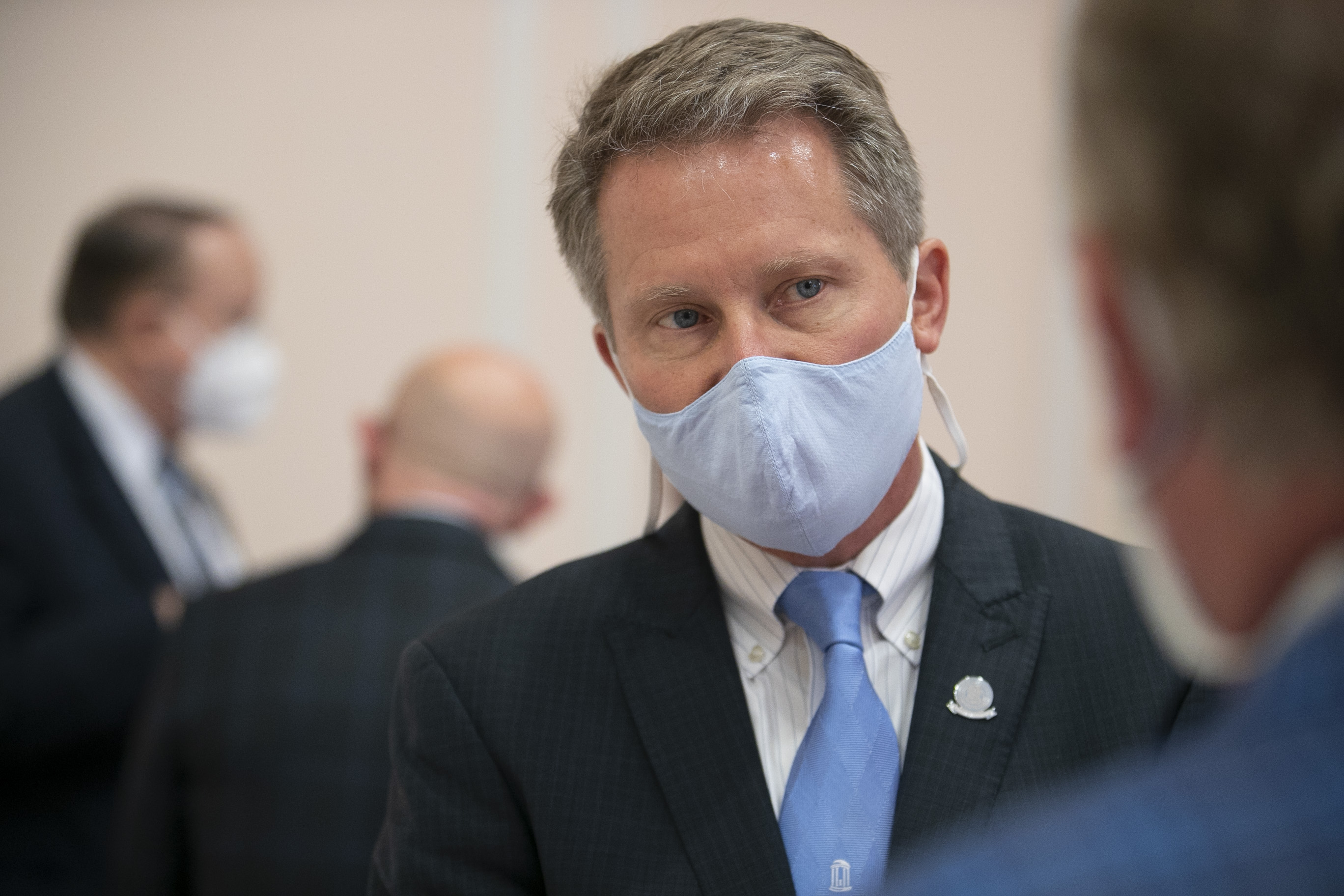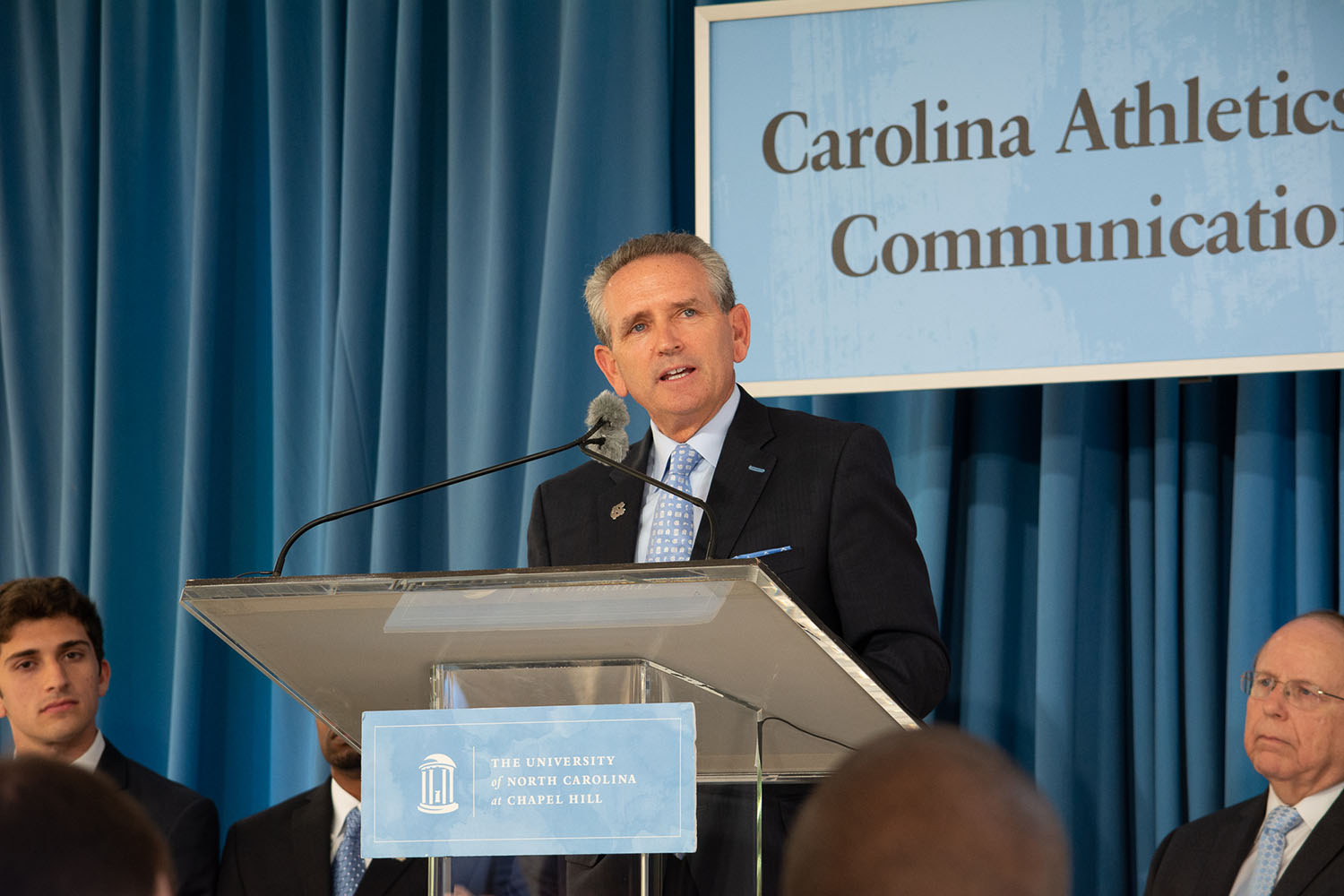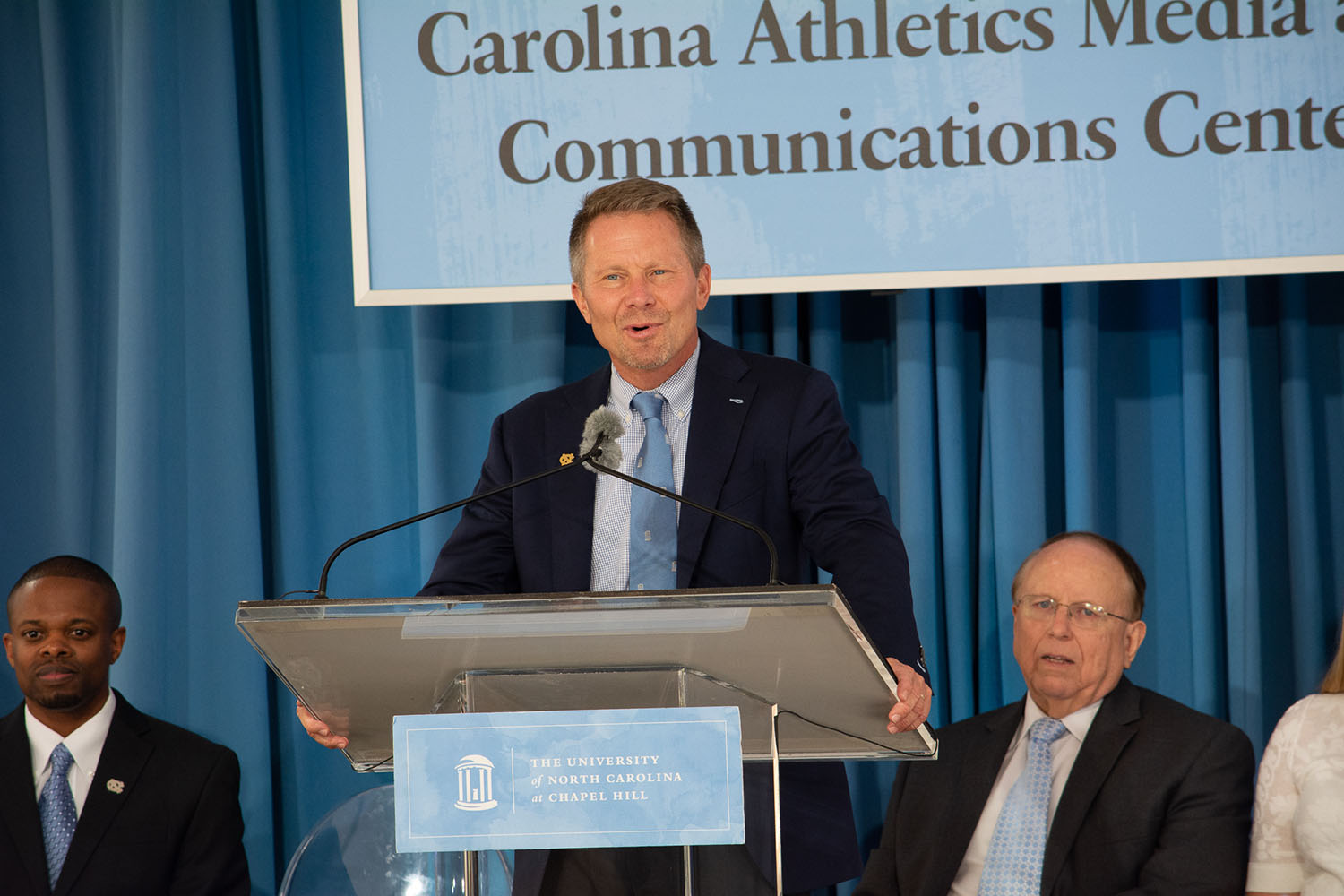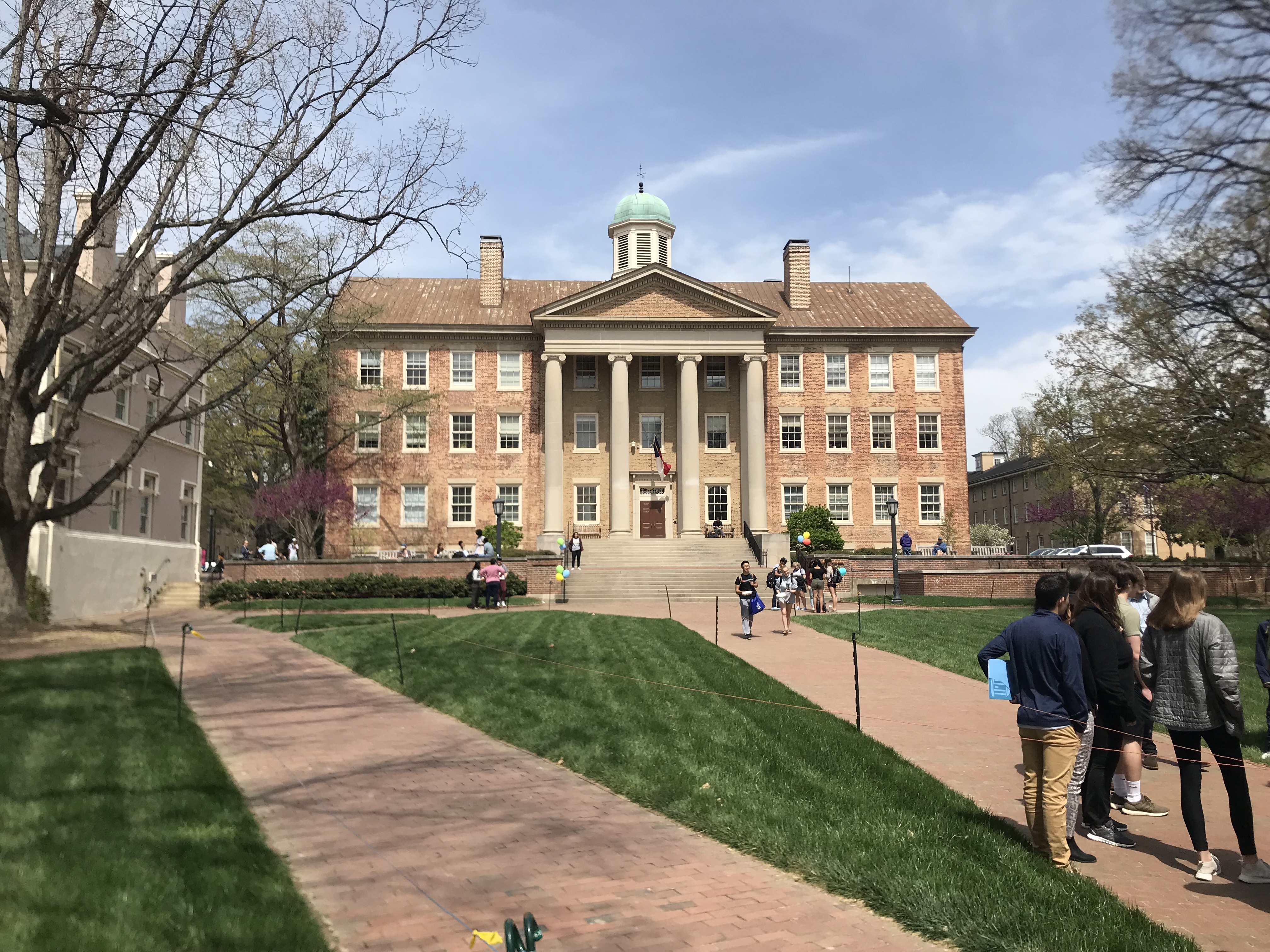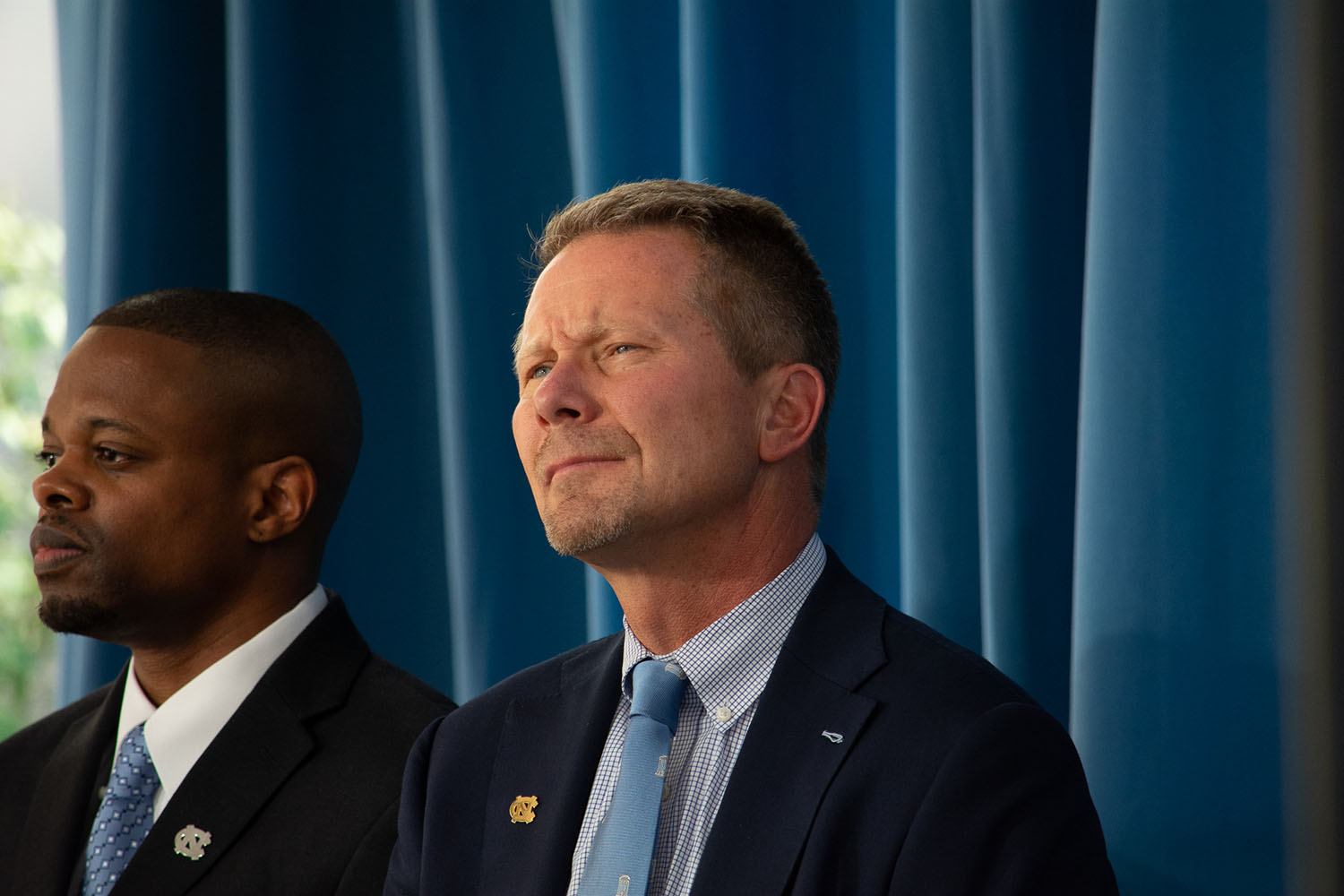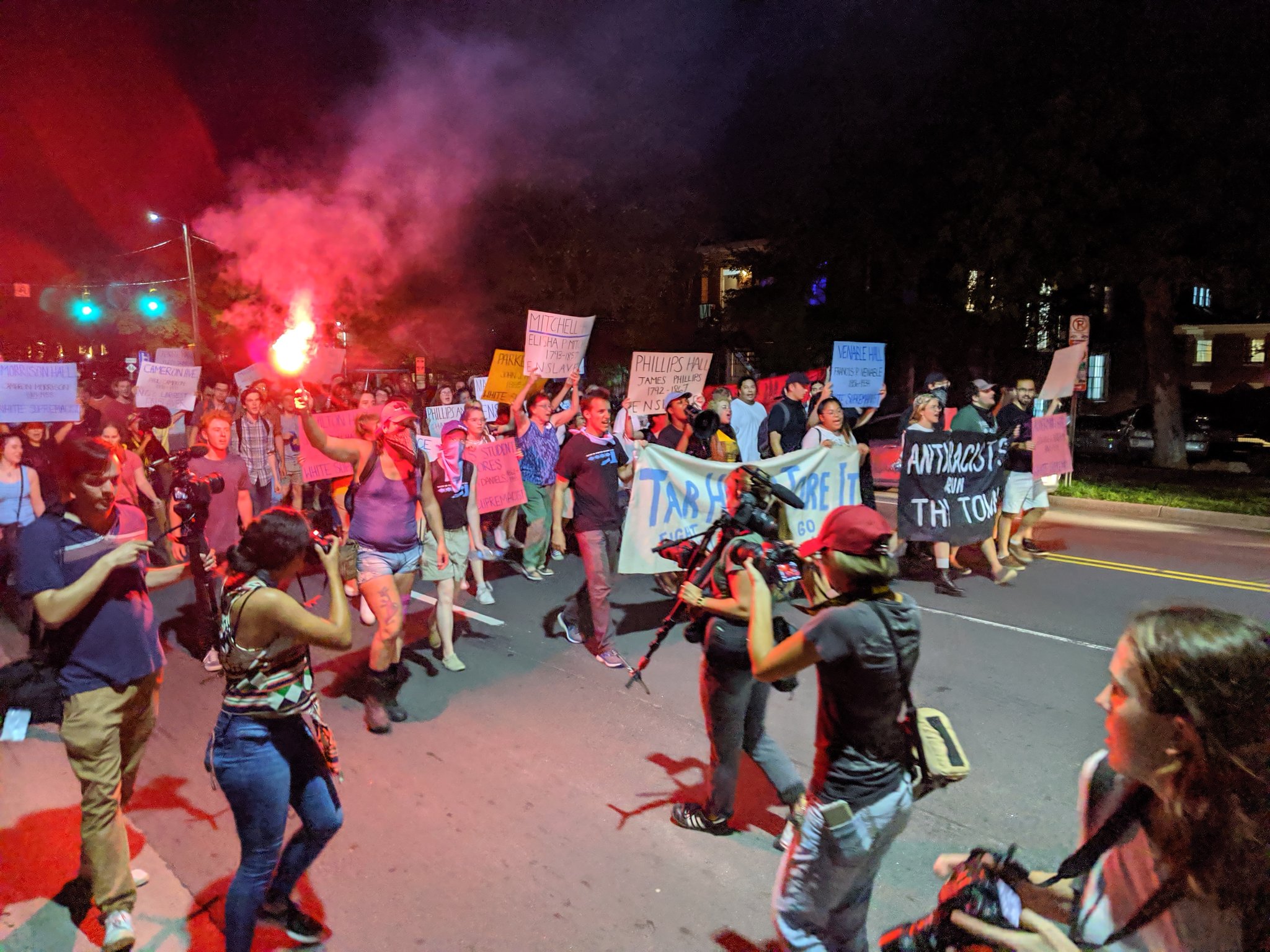In its first meeting of the new academic school year, the UNC Board of Trustees convened to share updates on the university’s operations amid the COVID-19 pandemic and classes being conducted remotely.
Most of the board members gathered in the Carolina Inn ballroom Thursday, socially distanced and wearing masks, while others participated virtually. The group addressed several items of business, but the meeting began with acknowledging the challenges facing UNC after most students who moved back to the Chapel Hill campus left again in August due to the coronavirus’ spread.
Chancellor Kevin Guskiewicz shared his praise for the university community for adapting to yet another semester affected by the virus. He said university officials have already begun to discuss plans for the spring semester with advisory groups and health experts, which include renewed efforts to hold in-person instruction.
“Our hope is that we will bring students back to live and learn on campus this spring semester,” said Guskiewicz during his opening comments of the meeting. “We would scale this to provide an on-campus experience for as many students as we can safely accommodate. That’s what we’ll be working toward alongside these various groups.”
The chancellor said in addition to the results of the first week of classes this fall semester, which saw more than 130 people test positive for COVID-19, discussions with the Campus and Community Advisory Group will help shape UNC’s decision-making. Made up of students, faculty and other community members, they will share their perspectives of the fall semester and concerns for the spring with university leadership.
Following the meeting, Guskiewicz said student compliance of on-campus health guidelines appeared relatively successful, with mask requirements, social distancing and other methods keeping people apart. He said further examination of handling on-campus housing and off-campus events will be done in the next few months as a plan is made.
“We’re looking closely at certain types of residence halls and those living environments where the risk for spread may be higher than others,” said the chancellor. “That will allow us to scale our operations for the spring semester as we decide how many students we want to bring back, and the testing is an important part of that. we’re looking at different testing methods, some randomized testing options as well as for students living in certain conditions to have mandatory testing.”
Guskiewicz also indicated the beginning of the spring semester will likely be pushed back. He said the university plans to make an announcement in the coming weeks shifting the start date from January 6 to either January 13 or January 19.
Beyond planning for the spring semester, UNC also faces challenges in addressing budget shortfalls created by the disruption of normal campus operations. As recently presented to the university’s Faculty Council, officials told trustees an estimated $300 million deficit from normal spending could be expected. Interim Vice Chancellor for Finance and Operations Nate Knuffman detailed that while $200 million of this comes from the loss of revenue from dining hall plans, housing fees, athletics revenues and more, another $100 million is carried over as a year-to-year gap in the university’s spending.
Some of the trustees expressed an interest in adjusting UNC’s revenue plan to account for this yearly discrepancy, including Trustee Chuck Duckett.
“On top of COVID-19, on top of all the efforts that this administration and the leadership here put forth, I’m glad [you are] taking it on,” said Duckett. “I’m glad this board is taking this seriously. It’s time to rip off the band-aid and let’s figure out where we are, let’s fix this thing instead of just coasting it down the road.”
Trustee John Preyer said he “strongly echoes” Duckett’s sentiments, saying he believes it’s time to address this ongoing challenge.
“Going forward,” he said, “I’m going to be looking to see what kind of recurring revenue cuts there are. Given the changes in higher education, everything might be more dire than is event forecast today. So, I think it’s very important we look at recurring cuts going forward.”
In the short-term, UNC is exploring the need to exercise an Emergency Furlough Provision as set by the state government to decrease the gap between planned spending and revenue. Carolina Athletics announced in August a plan for some staff to begin furloughs next month for this reason. University officials said Thursday emergency furloughs would only apply to permanent employees and not students or faculty. The provision also allows those furloughed to retain their benefits and ability to accrue leave.
The board’s next regular meeting is set to be held November 12-13.
Chapelboro.com does not charge subscription fees. You can support local journalism and our mission to serve the community. Contribute today – every single dollar matters.

